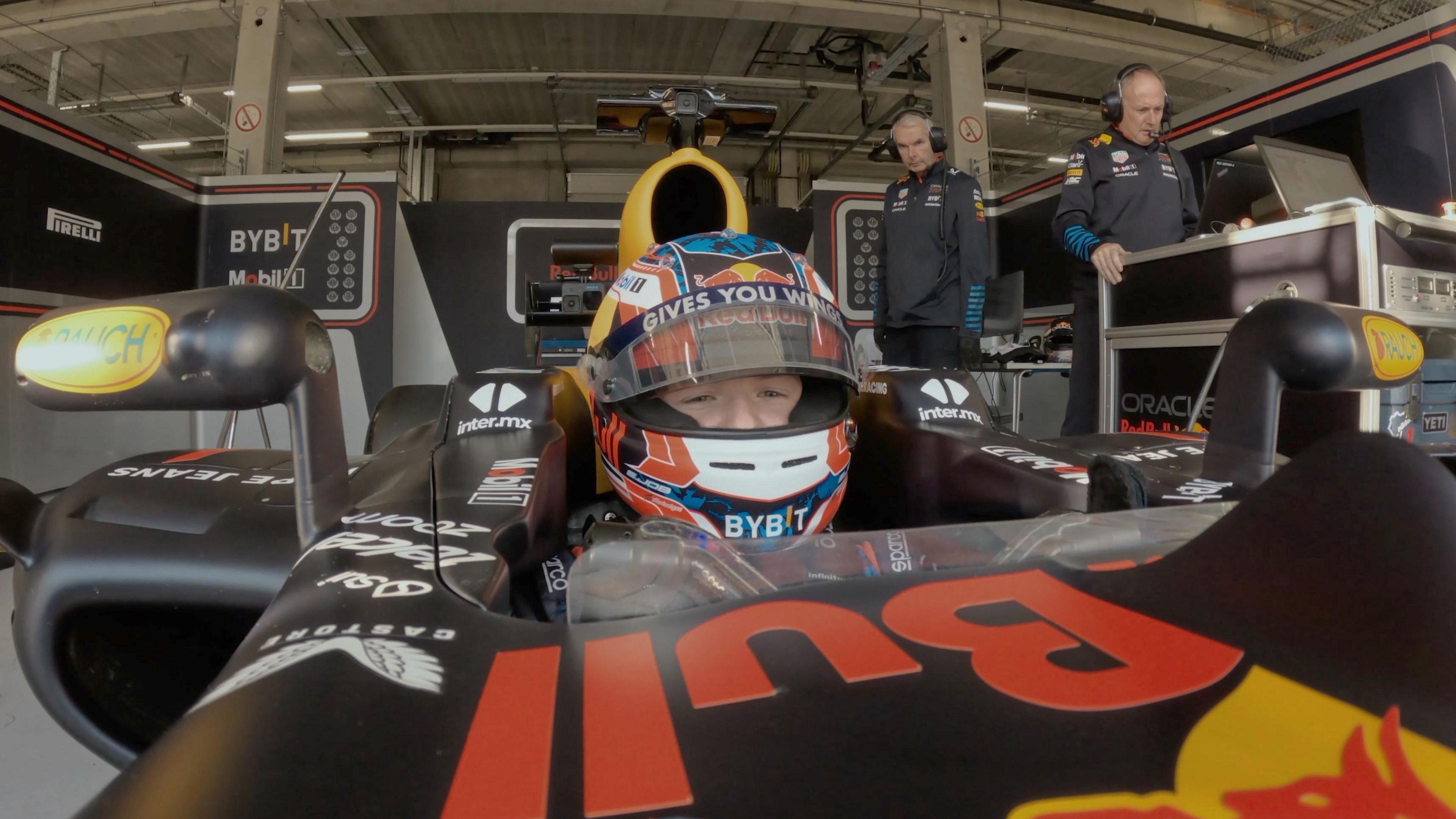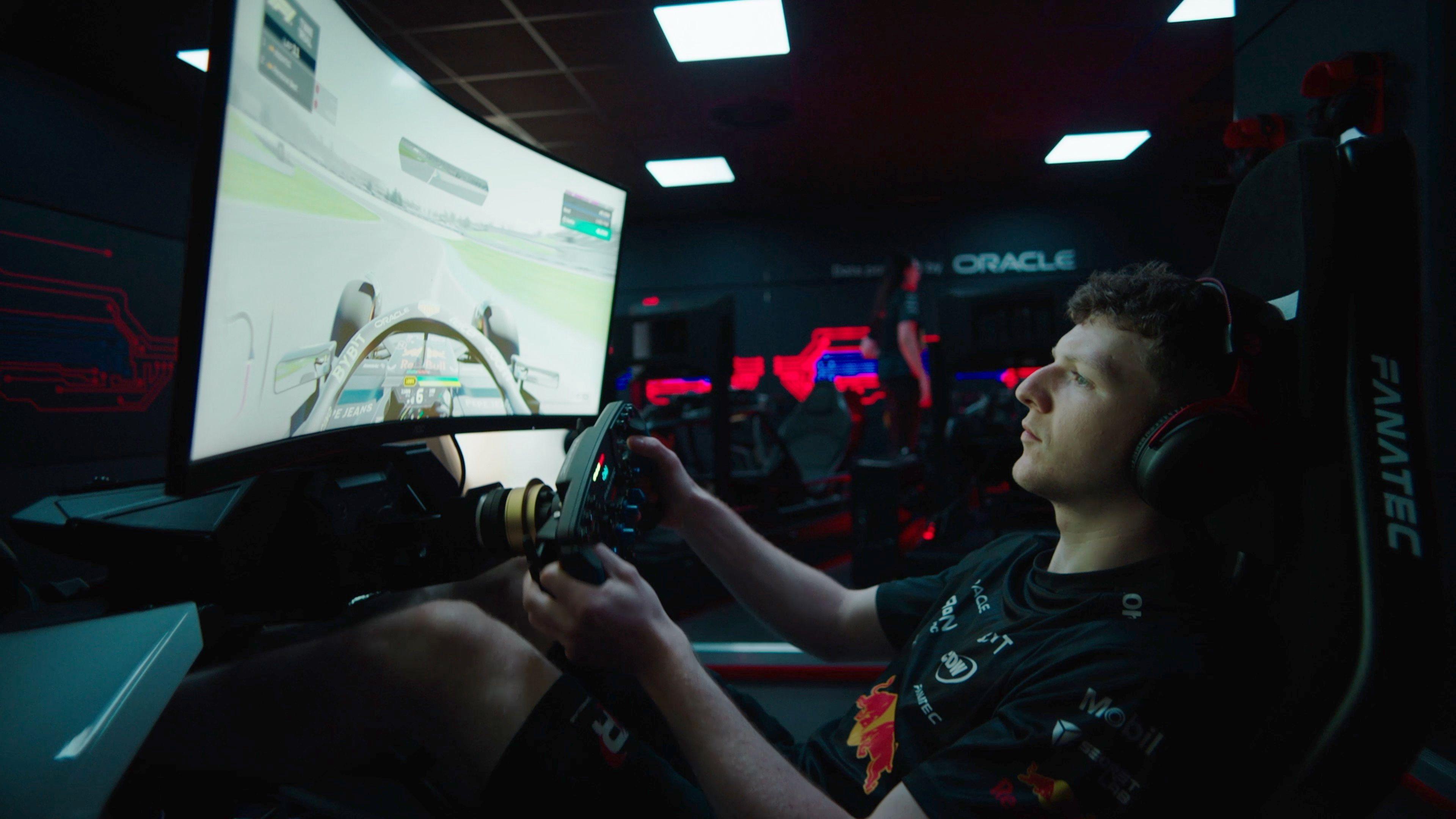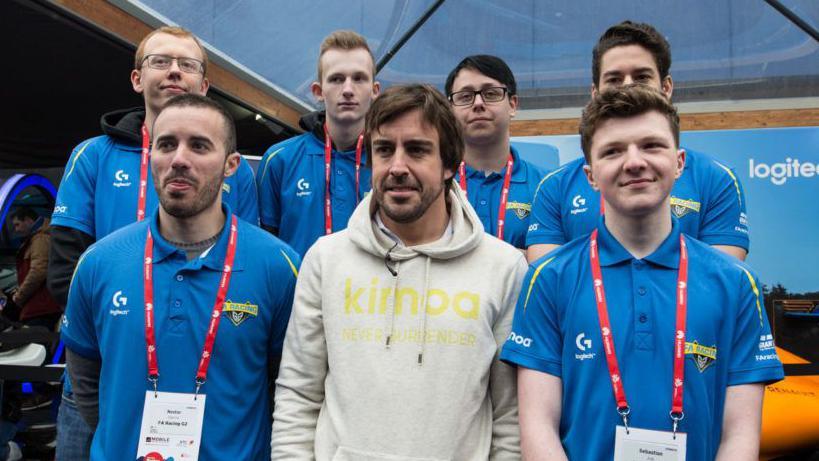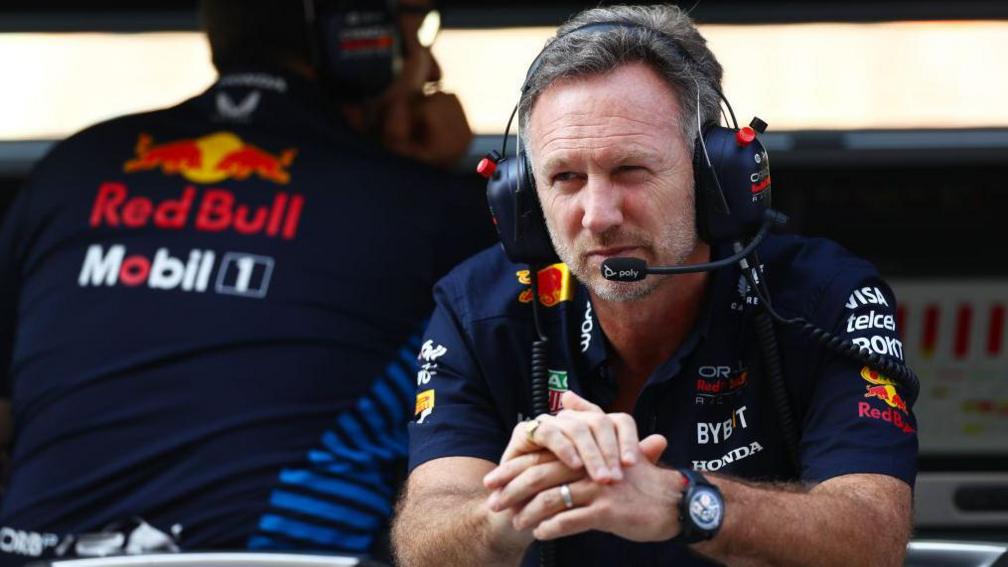
Standing beside Fernando Alonso after being flown to Barcelona for a photoshoot, Sebastian Job was finally a professional driver – despite having never driven a racing car.
The English esports gamer had won a number of ‘sim’ races – which simulate real-life races – and been signed by former F1 world champion Alonso’s esports team, which later merged with Oracle Red Bull Racing.
It is mandatory for all F1 teams to have an esports division, but Red Bull have done something no other has – put a sim racer in an F1 car.
“The speed just takes over,” said 24-year-old Job in a Red Bull film called Game to Glory, documenting his journey from esports to real-world racing.
With limited laps, Job was within one second of the standard set by ex-F1 driver Patrick Friesacher in Vettel’s 2012 title-winning V8 car, and was even more competitive in a Porsche GT3.

Job is now aiming to race in the Porsche Carrera Cup at courses including Brands Hatch and Donington Park, after he won three world titles in the virtual version.
“I went into sim racing because I knew I didn’t have the money to get into F1, and 11 years later I get to drive an F1 car – that’s inspiring for people to see,” he said.
“On the test days, we saw the true scale of what sim racing can do, so the goal now has to be to get me on the grid for the Porsche series or a similar one.”
Joseph Soltysik, Red Bull’s head of esports, said: “We’d love to see Seb race in real life, and that vision is shared across the wider team.
“We’re trying to find a feasible and sustainable way to fund it.”
‘The first person to employ me was Fernando Alonso’

Job grew up in East Grinstead, Sussex, and showed talent in karting at an early age but his parents could not afford the next stage of that discipline.
“I knew straight away the traditional route into motorsport wasn’t going to be possible because you do need to have an unbelievably wealthy family,” he said.
Instead, he decided to dedicate himself to sim racing and his parents bought him a set-up worth about £200.
“I enjoyed it and I knew I was good at it and I wanted to pursue it. But at the time pretty much no-one was doing it as a job,” he said.
“Around 2018, people started to get paid and it lined up nicely with me leaving sixth form. The first person to employ me was actually Fernando Alonso.
“They flew the drivers out to Barcelona, we got pictures with Alonso, my mum came and I think that was around the time my parents started to clock it.”
![Max Verstappen [left] and Seb Job](https://ichef.bbci.co.uk/ace/standard/2560/cpsprodpb/6c33/live/ebbb8a20-e577-11ef-a819-277e390a7a08.jpg)
At that age, Job had only just passed his driving test and also won a scholarship to race in Formula Ford, on real race tracks for a year.
But his biggest win came in 2020 when he won the Porsche Tag Heuer Esports Supercup, with a prize pot of $50,000 (£40,300).
At the height of the Covid-19 pandemic, esports was in the midst of a boom, with F1 drivers getting involved and Max Verstappen racing in the tournament Job won.
Many F1 drivers compete in esports, and ‘sims’ – short for simulators – are used by teams to model how cars will perform, but sim racers rarely become race drivers.
Jann Mardenborough’s journey from gaming in Cardiff to GT3 inspired the 2023 film Gran Turismo, starring Orlando Bloom.
No esports driver has gone on to compete in F1 – yet.
Sim racing more accessible – Horner

The cost of reaching the F1 grid runs into the millions, and many drivers are the sons of multi-millionaires, or men who competed at a high level in motorsport and can attract sponsorship.
Job believes one day sim racing will open the door for an F1 champion that would otherwise not get that opportunity.
“There’s no doubt in my mind, I don’t know how soon, but the most talented people, we probably don’t even know who they are because they can’t afford to race,” he said.
Red Bull team principal Christian Horner agrees that sim racing could make motor racing more accessible to young drivers.
“This challenge is to see how closely does the virtual world relate to the real world, that is the question to be answered – that is what this is all about,” he said in the Game to Glory documentary.
“I think sim racing could eventually create a broader pool of talent for the younger drivers because it’s way more accessible. Motor racing is expensive whereas sim racing is a much cheaper version.”
